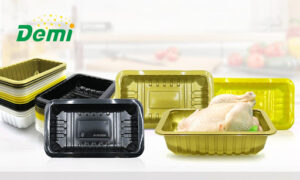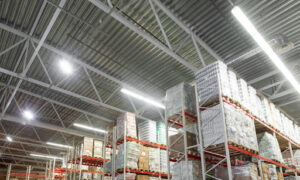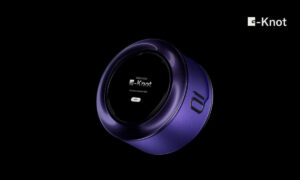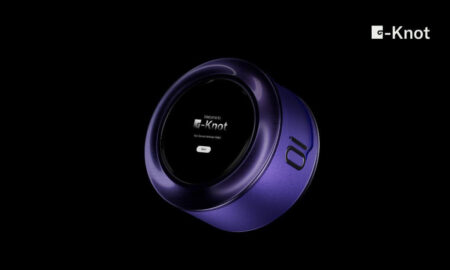A Comprehensive Guide to Renowned Glass Floor Manufacturers
Discover top glass floor manufacturers in our comprehensive guide. Explore their innovations, designs, and how they elevate your space.
Glass Floor Manufacturers
Glass flooring is increasingly sought after by homeowners and businesses alike, thanks to its unique style and practical advantages. It provides a modern look, transforming ordinary spaces into extraordinary ones. But what makes glass flooring so appealing? The answer lies in its versatility and aesthetic charm, evident in high-end homes, commercial buildings, museums, and art galleries.
Benefits of Glass Flooring
One main benefit of glass flooring is its ability to make spaces feel larger. By allowing light to pass through, glass floor suppliers create an open and airy atmosphere, which is especially useful in urban areas where every inch of space counts.
Glass flooring is also durable. Glass floor manufacturers utilize tempered or laminated glass, making it resistant to scratches, impacts, and harsh weather. This strength allows glass flooring to handle heavy foot traffic, making it ideal for commercial settings.
Uses of Glass Flooring
Glass flooring serves various purposes, including:
- Residential Homes: Creating stunning entrances, walkways, or patios.
- Commercial Spaces: Enhancing retail stores, showrooms, and offices.
- Public Buildings: Offering unique viewing areas in museums or art galleries.
- Architectural Features: Designing glass bridges, staircases, and balconies.
With its versatility and charm, glass flooring is a trendy choice for those looking to make a statement.
Top Features to Consider When Selecting Glass Floors
When choosing glass flooring, consider these key features to ensure you select the best option for your needs.
Type of Glass
The type of glass affects its performance. Common types include:
- Tempered Glass: This safety glass is heat-treated to increase strength. It resists thermal stress and is less likely to shatter upon impact.
- Laminated Glass: Made of two or more layers of glass bonded together, laminated glass offers improved safety. If broken, the glass fragments stick to the interlayer, reducing injury risk.
Thickness
The thickness of the glass flooring is vital for durability and load-bearing capacity. Thicker glass generally supports heavier loads, making it suitable for high-traffic areas.
Finish and Texture
The finish of glass flooring impacts both appearance and functionality. Options include:
- Clear Glass: Provides a sleek look, allowing maximum light through.
- Frosted Glass: Offers privacy while diffusing light, great for areas with glare.
- Textured Glass: Adds grip and reduces slipping risk, ideal for wet areas like bathrooms or poolside.
Safety Features
Safety should be a top priority when choosing glass flooring. Look for features such as anti-slip coatings or textured surfaces to help prevent accidents, especially in high-traffic or wet areas.
A Deep Dive into Renowned Glass Floor Manufacturers
As the market for glass flooring grows, several manufacturers have emerged as leaders. Here are some renowned glass floor manufacturers known for their quality and innovation.
Pilkington
Pilkington is a global leader in glass manufacturing. They are known for high-quality architectural glass products, including durable and appealing glass flooring solutions. Their offerings include laminated and tempered glass to meet various architectural needs.
Saint-Gobain
Saint-Gobain is another major player in the glass industry. They design innovative glass flooring solutions for residential and commercial applications, focusing on sustainability and energy efficiency, making their products a great choice for eco-conscious customers.
Guardian Glass
Guardian Glass is famous for its advanced glass technology. They offer a variety of glass flooring options that combine safety, style, and performance, often used in high-end commercial projects.
Glass Flooring Group
Specializing exclusively in glass flooring, the Glass Flooring Group provides unique designs and solutions. They focus on custom projects, allowing clients to personalize their glass flooring to suit their specific needs and aesthetic preferences.
Innovative Designs from Leading Manufacturers in the Industry
The creativity in glass flooring design is remarkable. Leading glass floor suppliers are pushing boundaries to offer solutions that blend function with artistry.
Custom Art Glass Floors
Many manufacturers now allow the incorporation of custom artwork into glass flooring. This lets homeowners and businesses express their individuality and create stunning focal points in their spaces. From intricate patterns to vibrant colors, the possibilities are endless.
Backlit Glass Flooring
Backlit glass flooring adds a dramatic touch to any space. By incorporating LED lighting beneath the glass, manufacturers create a luminous effect that enhances the overall ambiance. This design is popular in commercial environments like restaurants and retail spaces.
Glass Floor Panels with Embedded Elements
Some manufacturers embed elements such as stones or metal within the glass panels. This not only adds visual interest but also creates a unique tactile experience.
Interactive Glass Floors
Leading glass floor manufacturers are exploring interactive designs that respond to foot traffic. These floors can light up or change color when stepped on, providing an engaging experience for users. This technology is often used in busy venues and entertainment spaces.
Eco-Friendly Practices Among Top Glass Floor Producers
Many glass floor manufacturers are adopting eco-friendly practices as sustainability becomes crucial in construction and design.
Recycling and Reuse
Many manufacturers use recycled glass in their products. This practice reduces waste and the energy needed to produce new glass. By incorporating recycled materials, these companies contribute to a more sustainable future.
Energy-Efficient Production
Top glass flooring suppliers invest in energy-efficient manufacturing processes. By using renewable energy sources and optimizing production techniques, they minimize their carbon footprint.
Durability and Longevity
Glass flooring is durable, contributing to its sustainability. By choosing long-lasting materials, manufacturers reduce the need for frequent replacements, conserving resources.
Eco-Certifications
Many top glass floor producers seek eco-certifications for their products, showing their commitment to environmental responsibility. These certifications give consumers peace of mind, knowing they are making sustainable choices.
Comparative Analysis: Cost vs. Quality in Glass Flooring Solutions
When investing in glass flooring, understanding the relationship between cost and quality is crucial.
Initial Cost vs. Long-Term Value
High-quality glass flooring may have a higher initial cost, but it often provides better long-term value. Durable materials require less maintenance and fewer replacements, making them more cost-effective.
Installation Costs
The installation of glass flooring affects overall costs. Professional installation is recommended to ensure safety and proper fit, which adds to the initial expense. However, high-quality materials can reduce installation issues and costly repairs later.
Warranties and Guarantees
Investing in reputable brands often includes warranties that protect your purchase. These warranties assure you of the product’s durability and performance, adding value to your investment.
Aesthetic and Market Value
High-quality glass flooring enhances the aesthetic appeal of a property, potentially increasing its market value. A well-designed space with premium materials can attract buyers and justify a higher selling price.
Safety Standards and Regulations for Glass Floors Explained
Safety is essential when it comes to glass flooring. Understanding the regulations and standards governing glass floor installations helps ensure compliance and protects users.
Building Codes
Most regions have specific building codes that outline requirements for glass flooring installations. These codes often cover load-bearing capacity, slip resistance, and safety measures. Consult local regulations before installation.
Safety Glass Standards
Glass flooring must meet specific safety standards to withstand impacts and minimize injury risks. Many countries require tempered or laminated glass for safety applications, as these types are designed to break safely.
Slip Resistance Ratings
Glass floors should have a slip resistance rating that meets industry standards for safety. Manufacturers often test their products to determine slip resistance, crucial for areas prone to moisture like bathrooms or pool decks.
Installation Guidelines
Proper installation of glass flooring is critical for safety. Following manufacturer guidelines and hiring certified professionals helps ensure secure installation and compliance with safety standards.
Tips for Installation and Maintenance of Glass Flooring Systems
Successfully installing and maintaining glass flooring involves careful planning and attention to detail. Here are essential tips for a successful installation and longevity of your glass floors.
Installation Tips
- Hire Professionals: Always hire experienced professionals for glass flooring installation. Their expertise ensures correct and safe installation.
- Prepare the Subfloor: Make sure the subfloor is level and structurally sound. Imperfections can lead to cracking or failure of the glass flooring.
- Follow Manufacturer Instructions: Adhere to the manufacturer’s instructions for installation and maintenance to keep the warranty valid.
Maintenance Tips
- Regular Cleaning: Clean glass flooring regularly with a non-abrasive cleaner to maintain clarity and shine. Avoid harsh chemicals that can damage the surface.
- Inspect for Damage: Regularly check for cracks or chips in the glass. Addressing minor issues promptly can prevent larger problems.
- Use Rugs or Mats: In high-traffic areas, consider placing rugs or mats to protect the glass from heavy impacts and reduce wear.
- Avoid Excessive Weight: Be mindful of the weight placed on glass floors. Ensure the flooring is not overloaded beyond its load-bearing capacity.



































